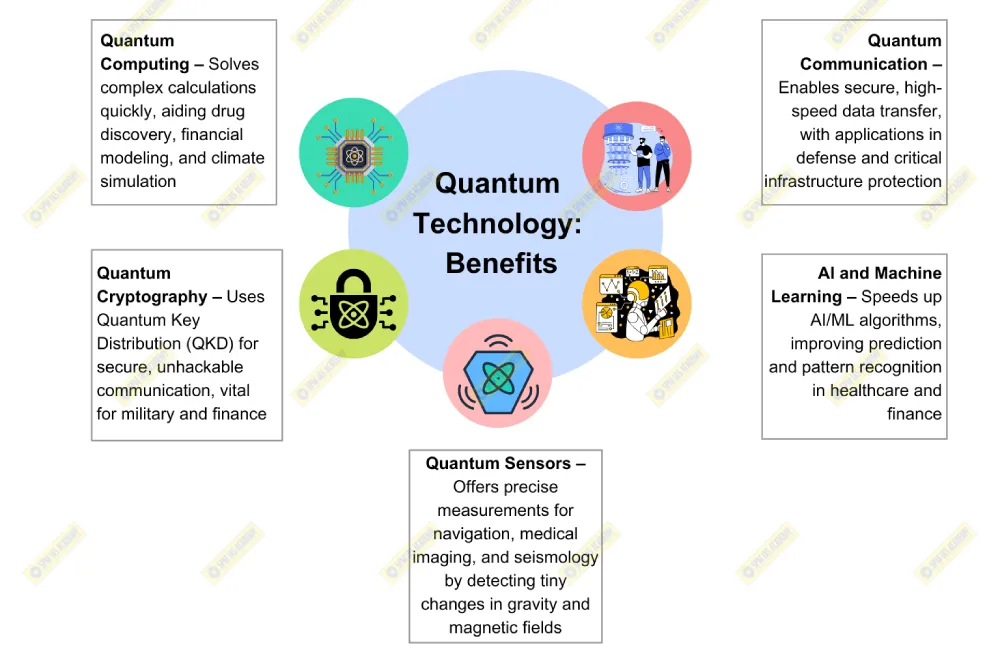Quantum Technology leverages the principles of quantum mechanics—such as superposition, entanglement, and quantum tunneling—to perform computations, enhance security, and improve sensing and imaging at levels that classical technology cannot match. This technology promises breakthroughs in computing, cryptography, healthcare, and defense, positioning it as a game-changer for countries seeking technological supremacy. Recognizing its potential, the Government of India has made significant efforts to advance quantum research and development.
Government Initiatives for Quantum Technology in India
1. National Mission on Quantum Technologies and Applications (NM-QTA)
Launched with an ₹8,000 crore budget over five years, NM-QTA is India’s flagship initiative to boost research and applications in quantum computing, cryptography, and communication. Announced in Union Budget 2020, it aims to place India among the top countries in quantum research and commercial applications by building critical infrastructure and fostering research.
2. Quantum Computing Collaboration with Industry and Academia

The Indian Institute of Science (IISc), Indian Institutes of Technology (IITs), and private tech firms like TCS and IBM are working together to build quantum research infrastructure. For instance, IIT Madras has launched a Quantum Computing Lab and programs to train students and professionals in this emerging field.
3. Quantum Key Distribution (QKD) Testing
The Defence Research and Development Organisation (DRDO) and IIT Delhi have successfully tested Quantum Key Distribution systems, which are vital for secure military communications. These QKD trials ensure that sensitive information transmitted over communication channels is protected from interception and hacking.
4. Quantum-enabled Secure Communication
In 2021, the Department of Telecommunications (DoT) conducted trials of quantum-secured communication links between government facilities. Such initiatives are crucial for securing India’s critical communications infrastructure against advanced cyber threats.
5. Quantum Incubation and Research Centers
India is establishing specialized quantum research centers and incubators, such as the Quantum Information Science and Technology (QuST) Hub at IISER Pune, dedicated to quantum computing, quantum sensors, and simulation technologies. These hubs aim to foster innovation and build a talent pool in quantum science.
India’s investment in quantum technology is essential to drive innovation, economic growth, and security in a rapidly evolving digital world. Through dedicated missions, research hubs, and collaborations with academia and industry, India is laying the groundwork to become a global leader in quantum technology, safeguarding its interests and fueling the next wave of technological advancements.











